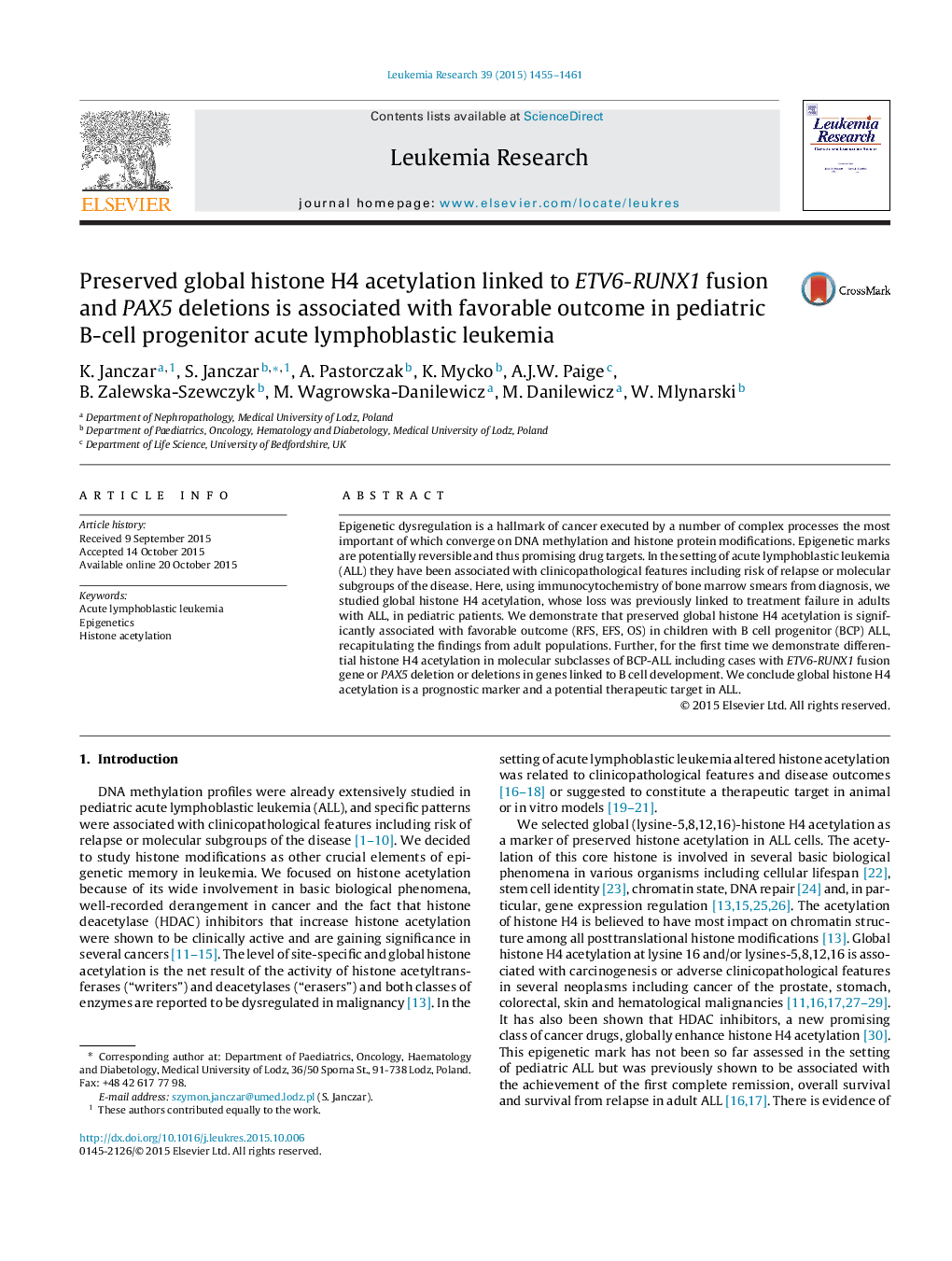| Article ID | Journal | Published Year | Pages | File Type |
|---|---|---|---|---|
| 2136535 | Leukemia Research | 2015 | 7 Pages |
•Global histone H4 acetylation is frequently lost in pediatric BCP-ALL.•Relatively preserved histone H4 acetylation is associated with favorable outcome in BCP-ALL.•Cases with ETV6-RUNX1 fusion gene and PAX5 deletions demonstrated higher histone H4 acetylation.
Epigenetic dysregulation is a hallmark of cancer executed by a number of complex processes the most important of which converge on DNA methylation and histone protein modifications. Epigenetic marks are potentially reversible and thus promising drug targets. In the setting of acute lymphoblastic leukemia (ALL) they have been associated with clinicopathological features including risk of relapse or molecular subgroups of the disease. Here, using immunocytochemistry of bone marrow smears from diagnosis, we studied global histone H4 acetylation, whose loss was previously linked to treatment failure in adults with ALL, in pediatric patients. We demonstrate that preserved global histone H4 acetylation is significantly associated with favorable outcome (RFS, EFS, OS) in children with B cell progenitor (BCP) ALL, recapitulating the findings from adult populations. Further, for the first time we demonstrate differential histone H4 acetylation in molecular subclasses of BCP-ALL including cases with ETV6-RUNX1 fusion gene or PAX5 deletion or deletions in genes linked to B cell development. We conclude global histone H4 acetylation is a prognostic marker and a potential therapeutic target in ALL.
